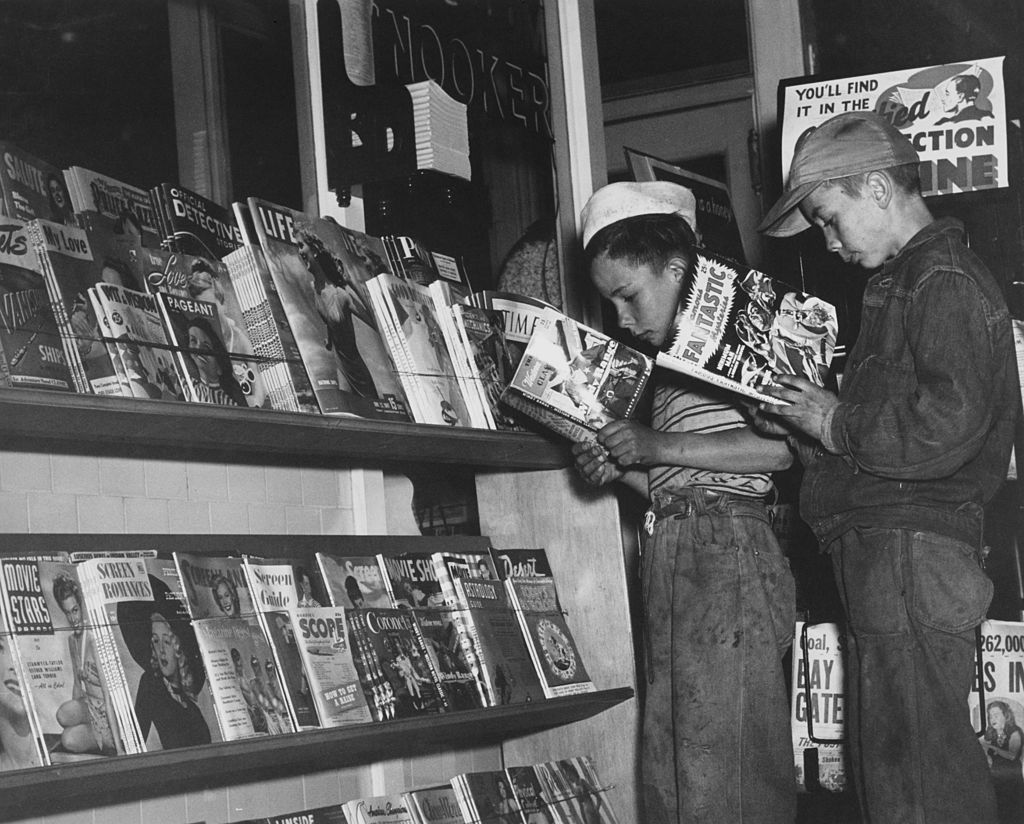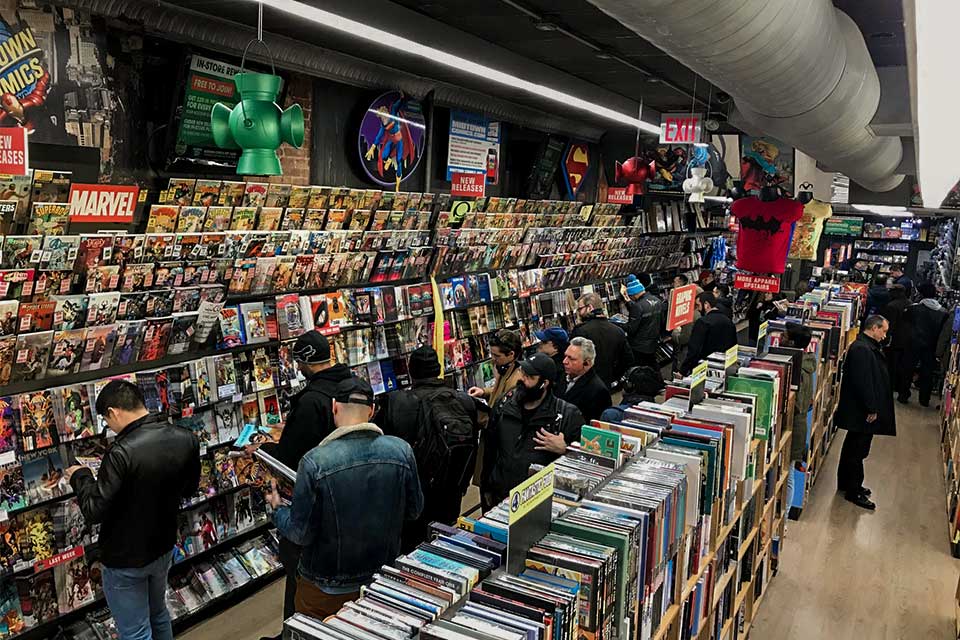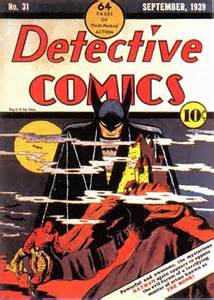How do you hide something from a Millennial?
Put it in a book
Yeah, I know: harsh generalization. But I bet the statistics would back it up. I would also bet there’s a strong correlation (if not causation) between recreational reading and independent/critical thinking.
When Did the Slide Begin?
Some sources suggest America’s decline in literacy began in the 1920s. I consider it more likely that significant decline can be traced to 1947, when television began to proliferate in middle class homes across America. But whatever.

What we do know is that the popularity of comic books exploded in 1938 and lasted into the 1950s (the superhero craze lasted from 1938 until about 1945). Comic books have never been as popular as they were during the Golden Age. And the comic-reading demographic during that time was mostly boys. A lot of teenagers read them, some old enough to serve in uniform overseas, but the scale tipped significantly to pre-teen boys. Specifically, these were late-cohort GI Generation, Silent Generation, and early-cohort Boomers.
Changing of the Guard
Many from the latter generation would continue reading comics into adulthood. Some from that generation would take over the industry, and shift their sights to an audience of their own peers, turning their backs on the following generations.

Fast-forward to today. With some exceptions, the Millennials and Homelanders* are functionally illiterate and incapable of independent/critical thought. Lots of factors have converged to handicap them this way. One factor is there have effectively no comic books that excited them as boys and led them to a transition to “more serious” prose books.
I listened to one of Chuck Dixon’s podcasts recently, He mentioned that Manga has attracted the young audience that comics lost over the course of the Pozzed Age.**
What Manga Proves
If Manga can win back that young demographic, then why couldn’t American comics, too? After all, American comics are the original gangsta that first won that audience, anyway.
Here is a windmill worth tipping at. I have begun some research, starting with Demon Slayer, which a librarian says is one of the more popular titles with teenagers. So far as drawing and writing style, it is more refined than most of the Golden Age comics. But I don’t see the story quality as an improvement. I’m sure there is better Manga out there (and hopefully I’ll find some), but take note, my fellow creators: we can do better than this stuff!
We don’t have the equivalent of Anime to market comics to kids, but we should think of something. The Boomers will begin dying off, soon, and American comics will die with them as a medium, unless we crack the code for finding a young audience.
Share your thoughts in the comments.
* I use Generational Theory, as codified by William Strauss & Neil Howe, not the MPAI terms like “Gen Y,” “Gen Z,” “Zoomers,” etc.
** IMO this age began in the 1990s and is still in effect, at least when it comes to mainstream entertainment. Some of us are hard at work trying to usher in an Iron Age…history will determine if we’re successful.


Instant gratification and short attention span has been fueled by social media like Instagram and TikTok. The American Youth these days doesn’t seem to even have the focus skills required to read a book
So many attractions competing for the attention of a young mind, these days (social media, videogames, YouTube shorts, tiktok) it’s not hard to fathom why so many struggle to find the time to read. Not helped by the fact that boys in particular have been robbed of many of their fictional heroes.
But, we must proceed with hope.
You’re right about that, Robert. But the fact that teenage (and younger) boys today are reading Manga tells us we could get them reading despite that stuff–if we:
1. publish what interests them
2. put it somewhere they can find it.
Something I never see clearly addressed is that the literal brain differences between boys and girls can be acerbated by a condition such as dyslexia or Asperger’s. It’s not necessarily an attention span thing, either. I’ve witnessed this numerous times in person: A boy may prefer comics because the combination of pictures and words helps him decode the text much faster than slogging through text alone. When I was teaching one of my sons to read, I had to invest in graphic novels and Calvin and Hobbes collections until everything ‘clicked’, and he became a reader. Same thing happened with my brother.
This is an excellent point. We learn to read, both boys and girls, with picture books. But there comes a point where a child feels too grown-up for picture books. Comics can bridge that gap. I know it was definitely the case with me. I read tons of comics before progressing on to novels. Girls seem to struggle less with this, likely because they seem to mature a little quicker, mentally speaking, which leads many into a lifelong habit of reading which many boys don’t settle into nearly as easily.
Excellent point. Boys and girls are wired different in general. Comic books and illustrated tales can be a portal to instill passion for reading for both, though.
Outstanding point, Sarah. Comic books bridged my transition. I might never have become such a voracious reader without them.